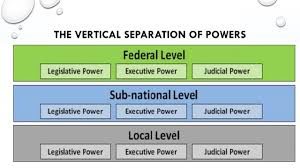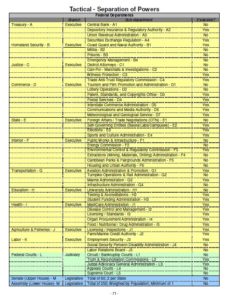Go Lean Commentary
The best offense is a good defense.
This is a winning strategy in football, yes (think NFL), but in nation-building as well. The actuality of the 30 Caribbean member-states is that we are losing … to the competition and opposition:
- We cannot attract and retain our young people to Stay Home in the region.
- We cannot muster the political will to reform or transform our societal engines (economics, security and governance).
Who exactly are our competition or opposition?
What do we know of their motives or designs?
How can we overcome their hindrance?
These are important questions to consider – and answer – if we want to succeed in reforming and transforming the societal engines in our region. This activity is referred to as Opposition Research, where we study and gather intelligence on any adversarial opponent that may challenge us from reaching our goals. See the formal definition here:
In politics, opposition research (also called oppo research) is the practice of collecting information on a political opponent or other adversary that can be used to discredit or otherwise weaken them. The information can include biographical, legal, criminal, medical, educational, or financial history or activities, as well as prior media coverage, or the voting record of a politician. Opposition research can also entail using “trackers” to follow an individual and record their activities or political speeches.[1]
The research is usually conducted in the time period between announcement of intent to run and the actual election; however political parties maintain long-term databases that can cover several decades. The practice is both a tactical maneuver and a cost-saving measure.[2] The term is frequently used to refer not just to the collection of information but also how it is utilized, as a component of negative campaigning. – Source: Retrieved January 30, 2020 from https://en.wikipedia.org/wiki/Opposition_research
Politics, discrediting, negative campaigning … these sounds so ominous, so malevolent!
But for the movement behind the 2013 book Go Lean … Caribbean, there is no evil intent. On the contrary, this is part of our effort to lower the “Push and Pull” factors that lure our citizens away from the homeland to seek refuge in foreign destinations. (“Push” refers to societal defects that compel people to leave; “Pull” refers to the perception that life is better abroad). Like any political campaign, we simply want the people to vote – with their wallets and their feet – for us rather than the “other guy”, our opposition.
There is a name for our pain; there are named opponents that hinders us; one of them is the United States of America. This is NOT a Declaration of War; rather this is just an acknowledgement that many of the policies and practices of America works counter-productive to Caribbean hopes and dreams. We are frenemies; see the full definition here:
“Frenemy” (also spelled “frienemy“) is an oxymoron and a portmanteau of “friend” and “enemy” that refers to “a person with whom one is friendly, despite a fundamental dislike or rivalry” or “a person who combines the characteristics of a friend and an enemy”.[1] The term is used to describe personal, geopolitical and commercial relationships both among individuals and groups or institutions. This term also describes a competitive friendship.
What do we know of the motives or designs … of our frienemy, the USA?
For one, they do NOT play fair. They do NOT play fair in the global sandbox; they want all the marbles and for you to have none! To them “Up is Down and Down is Up”; “Right is Wrong and Wrong is Right”. They have even distorted “common sense”. For example, remember this reality in modern times:
The Haves and the Have-Nots
Well for America, the principle that they advocate, promote and message is different … and deceptive; see VIDEO here depicting this messaging:
There are no “Have-Nots”; there is only “Haves” and the “Soon-To-Haves”
VIDEO – Rubio: “We Are A Nation Of Haves And Soon-To-Haves” – https://youtu.be/WiKrCUiP-fg
Senator Marco Rubio
Published Dec 16, 2011 – During a Senate floor speech this afternoon, U.S. Senator Marco Rubio (FL-R) offered his perspectives on his first year in office and the challenges that remain unsolved going into 2012. Below are excerpts from the speech. Rubio: “We have never been a nation of haves and have-nots. We are a nation of haves and soon-to-haves, of people who have made it and people who will make it. And that’s who we need to remain.”
- Category: News & Politics
Is this the American Dream?! Well, this is the problem right here. Common Sense dictates that there will always be winners and losers in any pursuit. Yet, with messaging like this, “hope springs eternal” that people will get to America and will someday be among the “Haves”.
This “Dream” is a fallacy! As a result, rather than empowerments to help the poor to elevate from poverty or programs to strengthen the middle class, there are only mandates that help the rich get richer – think tax cuts. So more Income Inequality is the end-result; see this actuality in the Appendix VIDEO below.
Who is the opposition? Needless to say, we are not talking about the common people on the street, rather we are referring to Crony-Capitalistic stakeholders in the country: Special Interest, Big Business, Corrupt Politicians. This is the Opposition.
The Late Great Comedian and Social Commentator George Carlin quipped that “you have to be asleep to believe the American Dream”. – follow this link to that VIDEO.
 Reducing taxes on the rich while placing the tax burden on the middle class; this sounds like a good deal … for the rich.
Reducing taxes on the rich while placing the tax burden on the middle class; this sounds like a good deal … for the rich.
The Opposition wants you Caribbean people to “beat down the doors” and get out of your beloved homeland and “Come to America” to join their workforce. The more people in the labor pool – the Supply – the more downward pressure on the wages for the available jobs – the Demand. This is Economics 101, when Supply exceed Demand, prices drop. This is how the rich get richer; alas, in this scenario, the middle class lose their bargaining power and wages become stagnate – in some cases people have lost their high-paying Union-backed jobs only to find near-minimum-wage service jobs.
How can we overcome the hindrance of the Opposition?
Answer: We overcome their hindrance by Forging Change in our society; we reform and transform the economic, security and governing engines despite the local opposition. We get the public to want the manifestation of this vision. We get the political leaders to lean-in this roadmap. This way we have Bottoms-Up and Top-Down pressure to make this roadmap succeed. Lastly, this dissuades our citizens from leaving the homeland as well; thereby sparing them from the American “nightmare” as the only available Dream – Caribbean people have dreams too!
This commentary is the continuation of this January 2020 series on the Art and Science of Forging Change in society. This entry is 2 of 4 for this series, unmasking the true Opposition to Caribbean progress. We must overcome these hindrance and obstacles to make progress on this roadmap. Other Forging Change considerations are presented in this series; see the full series catalog here:
- Forging Change – By Building Momentum
- Forging Change – Opposition Research: Special Interest
- Forging Change – Public-Private Partnerships (PPP)
- Forging Change – Labor Movement Cautionary Tale – Backlash: Going too far
This is all about Forging Change. This is not an easy assignment; it is both an Art and Science. But, the Art and Science gives insights on “how” the stewards of a new Caribbean can persuade people, establishments and institutions to forge change in their communities. We want change, but we do not want to be America; We Want To Be Better.
The previous entry in this series presented a YouTube VIDEO where advocates identified the corrupting “ring of influence” over elected leaders – in Congress et al. The goal for that advocacy group is to neutralize Special Interest Groups that were curtailing the needed progress … in the USA.

The research has now been done, we have the answers, we must move from the status quo to mitigate the designs of the opposition. One way or another, Change is Gonna Come. This thought of Forging Change has been a common theme for the movement behind the book Go Lean…Caribbean for more than 5 years. Before this series, there were 13 previous blog-commentaries that detailed approaches for forging change; see the full catalog here (in reverse chronological order):
- Forging Change – ‘That’s What Friends Are For’ (July 9, 2019)
- Forging Change – Corporate Vigilantism (March 29, 2018)
- Forging Change – Soft Power (February 21, 2018)
- Forging Change – Collective Bargaining (April 27, 2017)
- Forging Change – Addicted to Home (April 14, 2017)
- Forging Change – Arts & Artists (December 1, 2016)
- Forging Change – Panem et Circenses (November 15, 2016)
- Forging Change – Herd Mentality (October 11, 2016)
- Forging Change – ‘Something To Lose’ (November 18, 2015)
- Forging Change – ‘Food’ for Thought (April 29, 2015)
- Forging Change – Music Moves People (December 30, 2014)
- Forging Change – The Sales Process (December 22, 2014)
- Forging Change – The Fun Theory (September 9, 2014)
Forging Change is not easy; some strategies work with some people while others may be unmoved. This is why there is the need for so many different strategies, tactics and implementations. As evident by these foregoing 13 commentaries, the Go Lean movement presented a roadmap to “leave no stone unturned” for reforming and transforming the region. “Reforming and transforming” means making our Caribbean homeland a better place to live, work and play.
We hereby urge all stakeholders to lean into this Go Lean roadmap. 🙂
About the Book
The book Go Lean…Caribbean serves as a roadmap for the introduction and implementation of the technocratic Caribbean Union Trade Federation (CU), for the elevation of Caribbean society – for all member-states. This CU/Go Lean roadmap has these 3 prime directives:
- Optimization of the economic engines in order to grow the regional economy to $800 Billion & create 2.2 million new jobs.
- Establishment of a security apparatus to ensure public safety and protect the resultant economic engines.
- Improve Caribbean governance to support these engines, including a separation-of-powers between the member-states and CU federal agencies.
The Go Lean book provides 370-pages of turn-by-turn instructions on “how” to adopt new community ethos, plus the strategies, tactics, implementations and advocacies to execute so as to reboot, reform and transform the societal engines of Caribbean society.
Download the free e-Book of Go Lean … Caribbean – now!
Who We Are
The movement behind the Go Lean book – a non-partisan, apolitical, religiously-neutral Community Development Foundation chartered for the purpose of empowering and re-booting economic engines – stresses that reforming and transforming the Caribbean societal engines must be a regional pursuit. This was an early motivation for the roadmap, as pronounced in the opening Declaration of Interdependence (Pages 12 – 13):
xi. Whereas all men are entitled to the benefits of good governance in a free society, “new guards” must be enacted to dissuade the emergence of incompetence, corruption, nepotism and cronyism at the peril of the people’s best interest. The Federation must guarantee the executions of a social contract between government and the governed.
xvi. Whereas security of our homeland is inextricably linked to prosperity of the homeland, the economic and security interest of the region needs to be aligned under the same governance. Since economic crimes … can imperil the functioning of the wheels of commerce for all the citizenry, the ccidence of this Federation must equip the security apparatus with the tools and techniques for predictive and proactive interdictions.
xxiv. Whereas a free market economy can be induced and spurred for continuous progress, the Federation must install the controls to better manage aspects of the economy: jobs, inflation, savings rate, investments and other economic principles. Thereby attracting direct foreign investment because of the stability and vibrancy of our economy.
Sign the petition to lean-in for this roadmap for the Caribbean Union Trade Federation.
———————-
Appendix VIDEO – What does wealth inequality look like? – https://www.cbsnews.com/live/video/20200131132211-wealth-tax-floated-as-solution-to-americas-growing-wealth-inequality/
Posted January 31, 2020 – The growing gap between rich and poor Americans is one of the U.S.’s biggest challenges, with the top 1% controlling more wealth now than at any time in the last 50 years. A recent survey found that over half the country thinks it’s a problem, though most people might not know exactly what wealth inequality looks like. Tony Dokoupil speaks to Americans to see if they know what their “share of the pie” looks like.
https://www.cbs.com/shows/cbs_this_morning/video/7qsoOCpUsvJicQVaszWVcERqEwTgb72b/americans-know-wealth-inequality-is-a-problem-but-what-does-it-look-like-/
 There are two kinds of changes:
There are two kinds of changes:
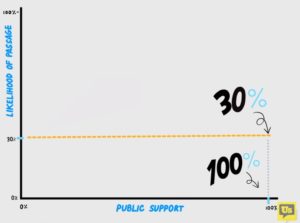


 There were rumors, accusations and suspicions of cruel atrocities against victims behind the German lines during World War II. Nevertheless, there was also a degree of doubt as well. Nazi Germany had deniability … until this day 75 years ago. This is when Soviet troops liberated the Concentration Camp in Auschwitz, Poland:
There were rumors, accusations and suspicions of cruel atrocities against victims behind the German lines during World War II. Nevertheless, there was also a degree of doubt as well. Nazi Germany had deniability … until this day 75 years ago. This is when Soviet troops liberated the Concentration Camp in Auschwitz, Poland:

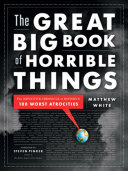
 As the Year 2019 ends, many are concluding – and yes, we are among those concluding, we the movement behind the 2013 book Go Lean…Caribbean – that this “time did not fly”; it dragged along slowly; “Chronostasis” indeed during this “year of living dangerously”; (see Appendix Reference below).
As the Year 2019 ends, many are concluding – and yes, we are among those concluding, we the movement behind the 2013 book Go Lean…Caribbean – that this “time did not fly”; it dragged along slowly; “Chronostasis” indeed during this “year of living dangerously”; (see Appendix Reference below).



 In fact, for most of the 30 Caribbean member-states, that Christmas dinner you enjoyed was mostly imported food. So if the transportation networks are ever interrupted, the flow of the needed food stuff would be impeded.
In fact, for most of the 30 Caribbean member-states, that Christmas dinner you enjoyed was mostly imported food. So if the transportation networks are ever interrupted, the flow of the needed food stuff would be impeded.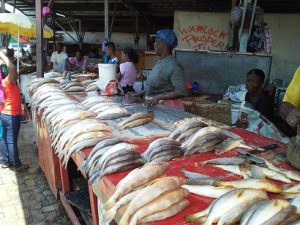
 The industries of agri-business allow structured commercial systems to grow, harvest and trade in food supplies. Many of the Caribbean member states (Lesser Antilles) acquire all their food in trade, the agricultural footprint is very small, though some countries (Greater Antilles, Belize, Guyana & Suriname) have a low opportunity cost for producing food. But with the Trade Federation in force, intra-region trade will be the first priority. When the demand is qualified, quantified and assured, the supply and quality there in, will catch up.
The industries of agri-business allow structured commercial systems to grow, harvest and trade in food supplies. Many of the Caribbean member states (Lesser Antilles) acquire all their food in trade, the agricultural footprint is very small, though some countries (Greater Antilles, Belize, Guyana & Suriname) have a low opportunity cost for producing food. But with the Trade Federation in force, intra-region trade will be the first priority. When the demand is qualified, quantified and assured, the supply and quality there in, will catch up.






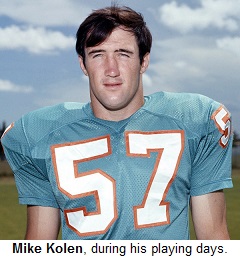





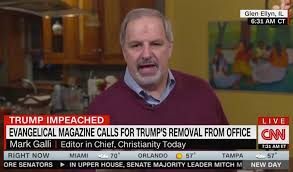 In our founding documents, Billy Graham explains that Christianity Today will help evangelical Christians interpret the news in a manner that reflects their faith. The impeachment of Donald Trump is a significant event in the story of our republic. It requires comment.
In our founding documents, Billy Graham explains that Christianity Today will help evangelical Christians interpret the news in a manner that reflects their faith. The impeachment of Donald Trump is a significant event in the story of our republic. It requires comment. To the many evangelicals who continue to support Mr. Trump in spite of his blackened moral record, we might say this: Remember who you are and whom you serve. Consider how your justification of Mr. Trump influences your witness to your Lord and Savior. Consider what an unbelieving world will say if you continue to brush off Mr. Trump’s immoral words and behavior in the cause of political expediency. If we don’t reverse course now, will anyone take anything we say about justice and righteousness with any seriousness for decades to come? Can we say with a straight face that abortion is a great evil that cannot be tolerated and, with the same straight face, say that the bent and broken character of our nation’s leader doesn’t really matter in the end?
To the many evangelicals who continue to support Mr. Trump in spite of his blackened moral record, we might say this: Remember who you are and whom you serve. Consider how your justification of Mr. Trump influences your witness to your Lord and Savior. Consider what an unbelieving world will say if you continue to brush off Mr. Trump’s immoral words and behavior in the cause of political expediency. If we don’t reverse course now, will anyone take anything we say about justice and righteousness with any seriousness for decades to come? Can we say with a straight face that abortion is a great evil that cannot be tolerated and, with the same straight face, say that the bent and broken character of our nation’s leader doesn’t really matter in the end? Mercedes-Benz is a German global automobile marque and a division of
Mercedes-Benz is a German global automobile marque and a division of 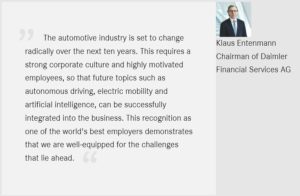

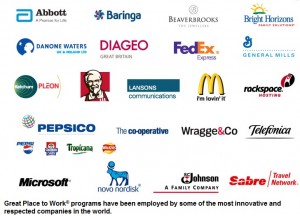


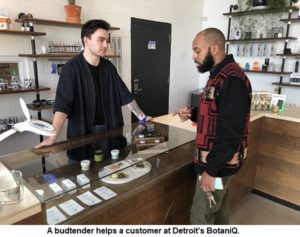 When Council adopted zoning ordinances for where there could be a provisioning center, the result was almost nowhere. Now much of the available space has been taken by medical marijuana provisioning centers. There are no social-equity provisions in the medical marijuana law, and any marijuana arrests from the past disqualified one from getting a provisioning center license. On top of that, the state is only taking adult-use marijuana applications from already established medical marijuana provisioning centers.
When Council adopted zoning ordinances for where there could be a provisioning center, the result was almost nowhere. Now much of the available space has been taken by medical marijuana provisioning centers. There are no social-equity provisions in the medical marijuana law, and any marijuana arrests from the past disqualified one from getting a provisioning center license. On top of that, the state is only taking adult-use marijuana applications from already established medical marijuana provisioning centers.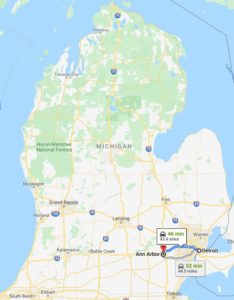
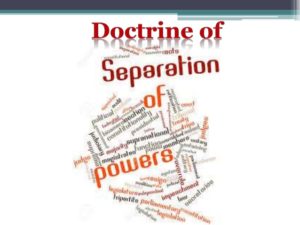 … let’s take all the assets-powers-responsibilities and divvy them up between the one party and the other. (Sounds like a Country-Western Break-up song, right? See sample in the Appendix VIDEO below). But, in this case, let’s do this separation, not so that we can go our separate ways, but rather let’s do this separation so that we can come together:
… let’s take all the assets-powers-responsibilities and divvy them up between the one party and the other. (Sounds like a Country-Western Break-up song, right? See sample in the Appendix VIDEO below). But, in this case, let’s do this separation, not so that we can go our separate ways, but rather let’s do this separation so that we can come together: As related, we publish a series of teaching commentaries every month – as a supplement to the Go Lean book. This month, we are examining the thesis that we, in the Caribbean, can be Better Than America, in words (law) and in action. The issue of confederation is a valid consideration in this month’s teaching subject on the perceived ‘masterpiece’ of the US Constitution and the Bill of Rights – the first 10 Amendments that were proposed-ratified right at the start of the accession of the new Constitutional Republic (1791). In earlier commentaries of this series, we detailed the anti-tyranny provisions and criminal proceedings of the Bill of Rights; now we look at the Separation of Powers provisions, the Ninth and Tenth Amendments of the US Constitution. These provide the legal premise as follows:
As related, we publish a series of teaching commentaries every month – as a supplement to the Go Lean book. This month, we are examining the thesis that we, in the Caribbean, can be Better Than America, in words (law) and in action. The issue of confederation is a valid consideration in this month’s teaching subject on the perceived ‘masterpiece’ of the US Constitution and the Bill of Rights – the first 10 Amendments that were proposed-ratified right at the start of the accession of the new Constitutional Republic (1791). In earlier commentaries of this series, we detailed the anti-tyranny provisions and criminal proceedings of the Bill of Rights; now we look at the Separation of Powers provisions, the Ninth and Tenth Amendments of the US Constitution. These provide the legal premise as follows: